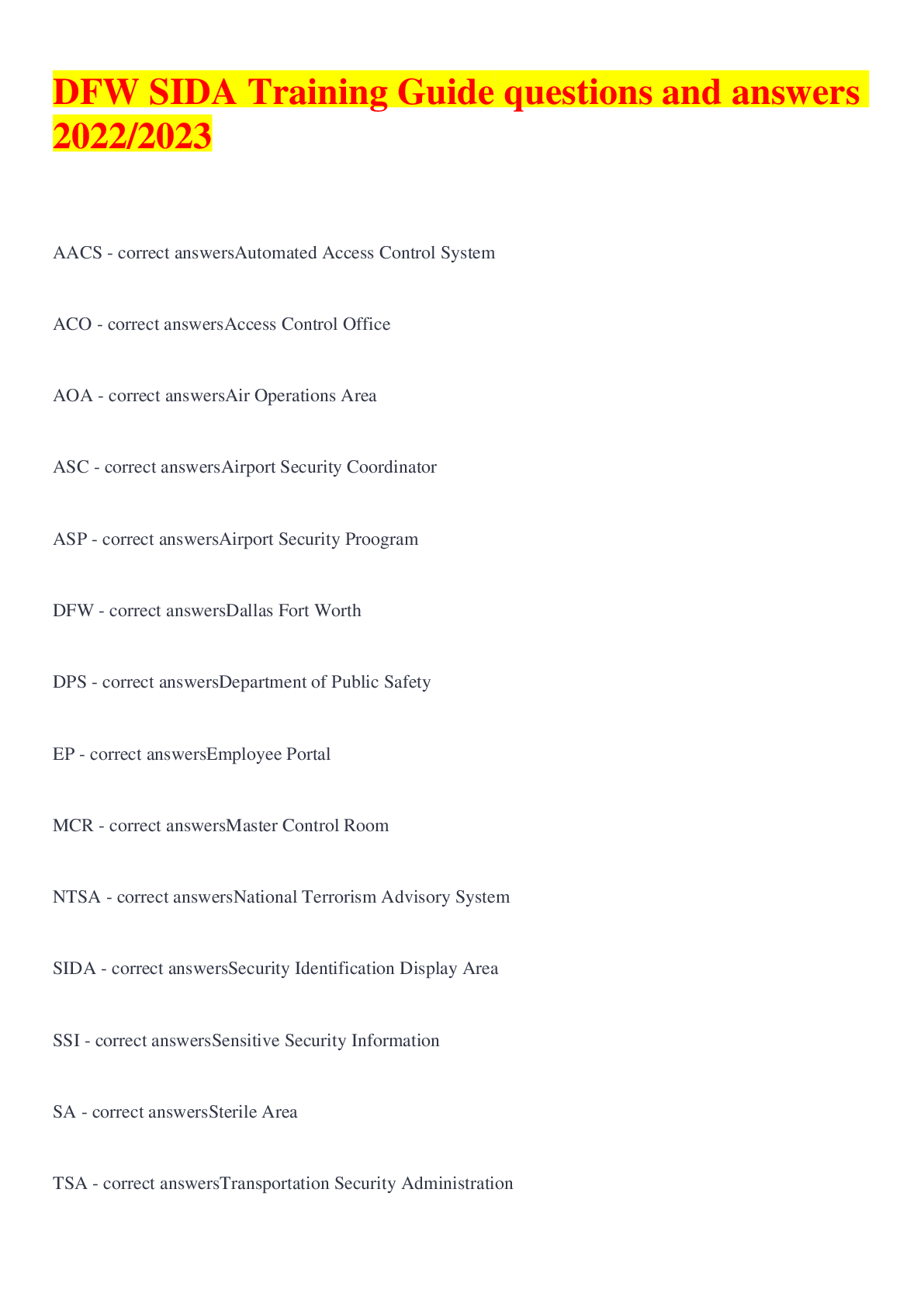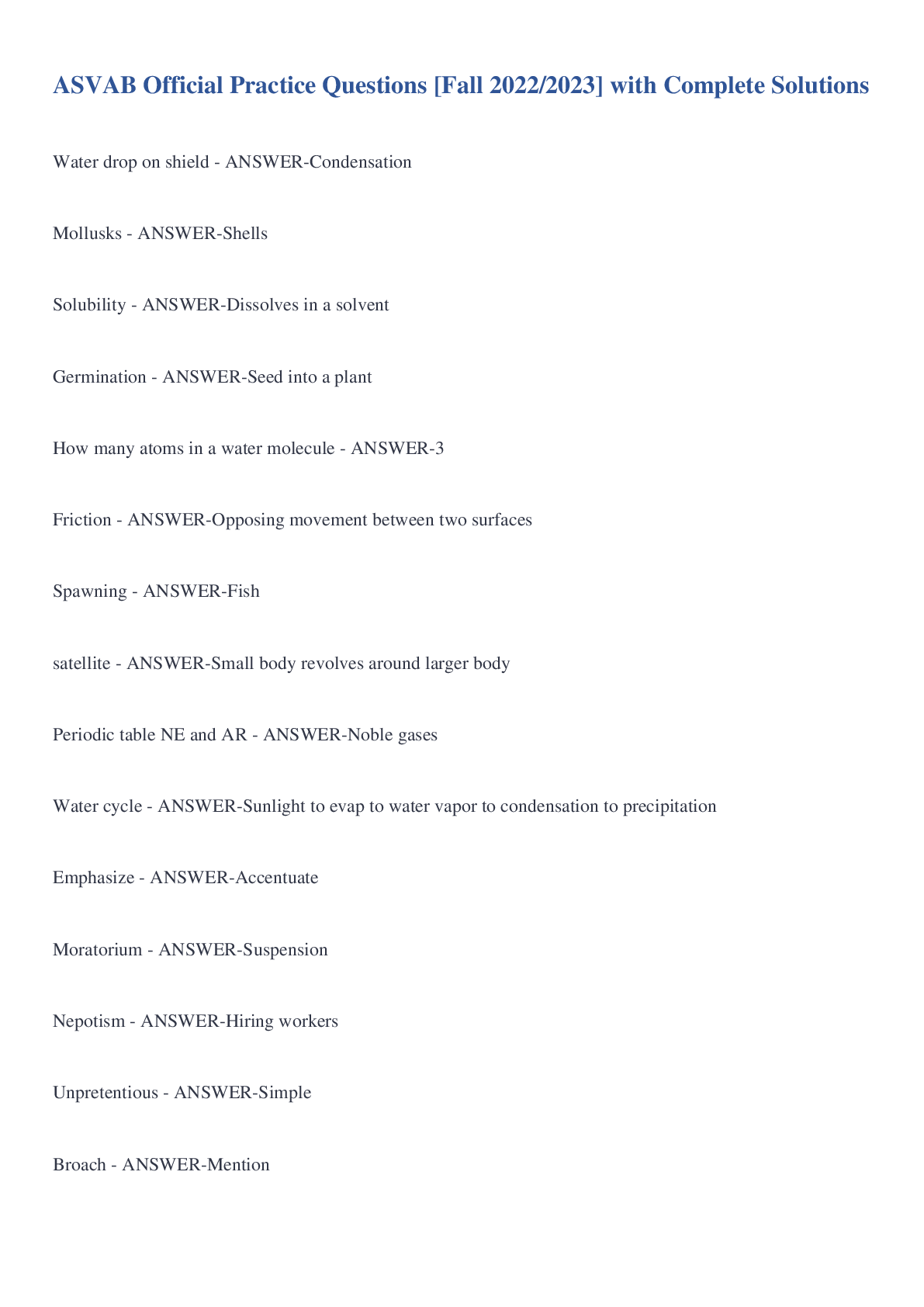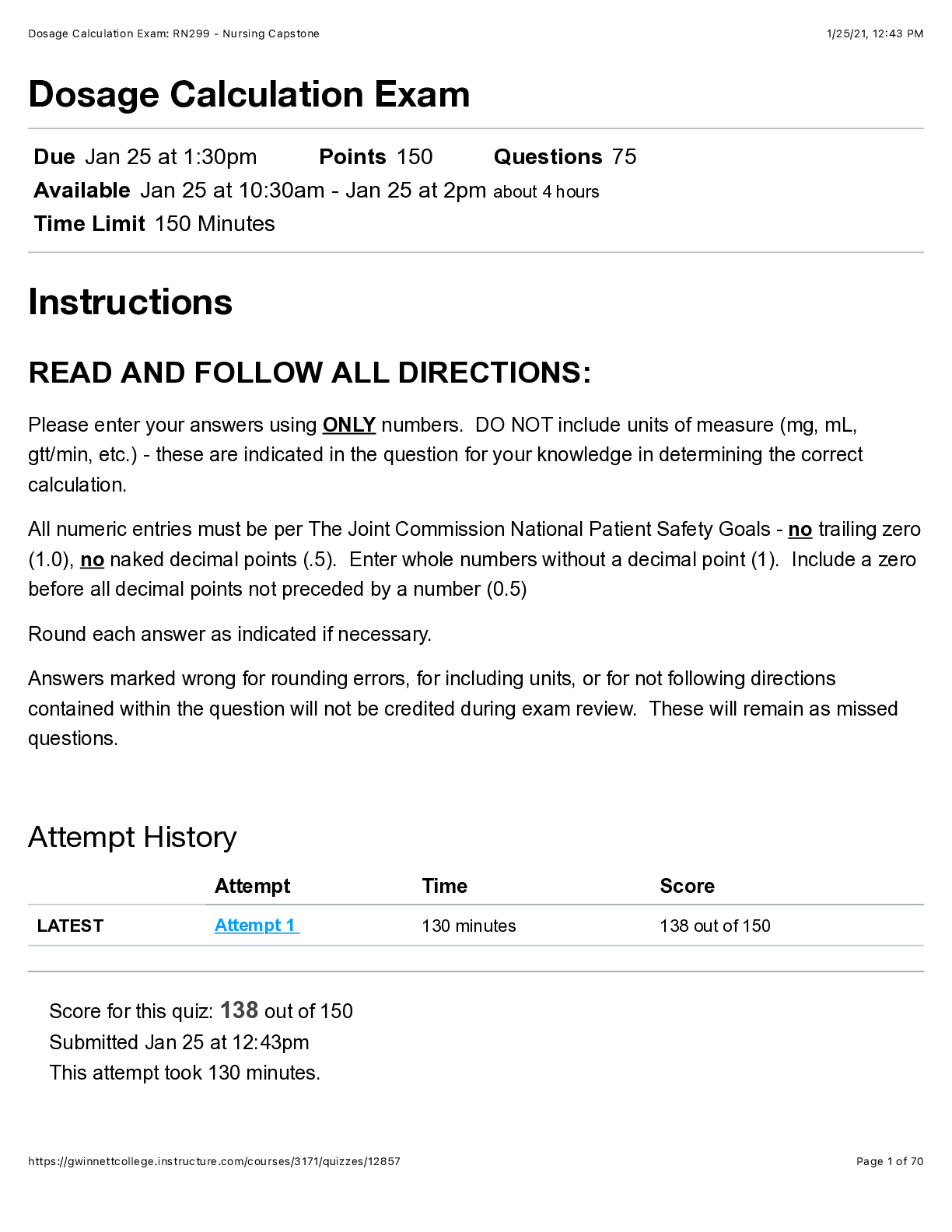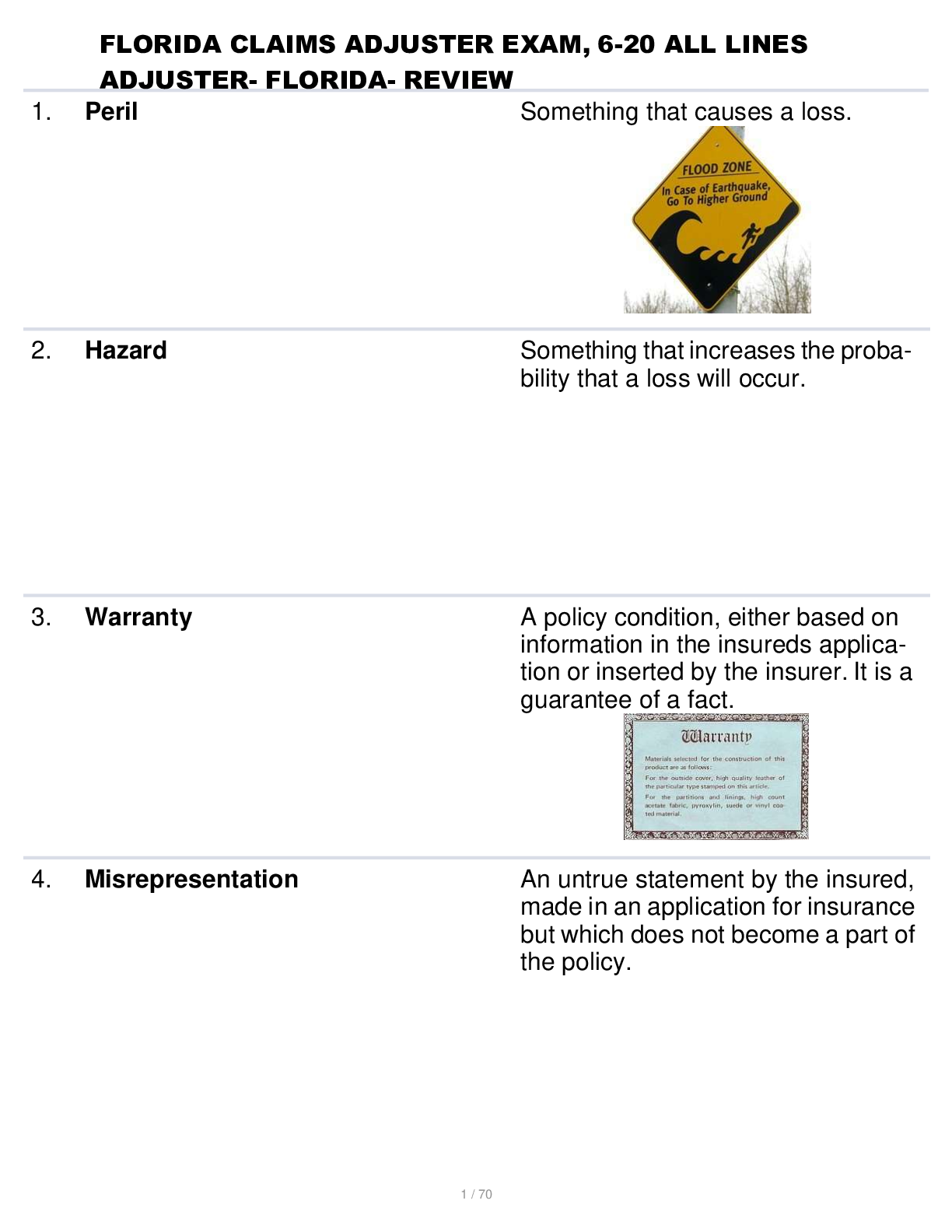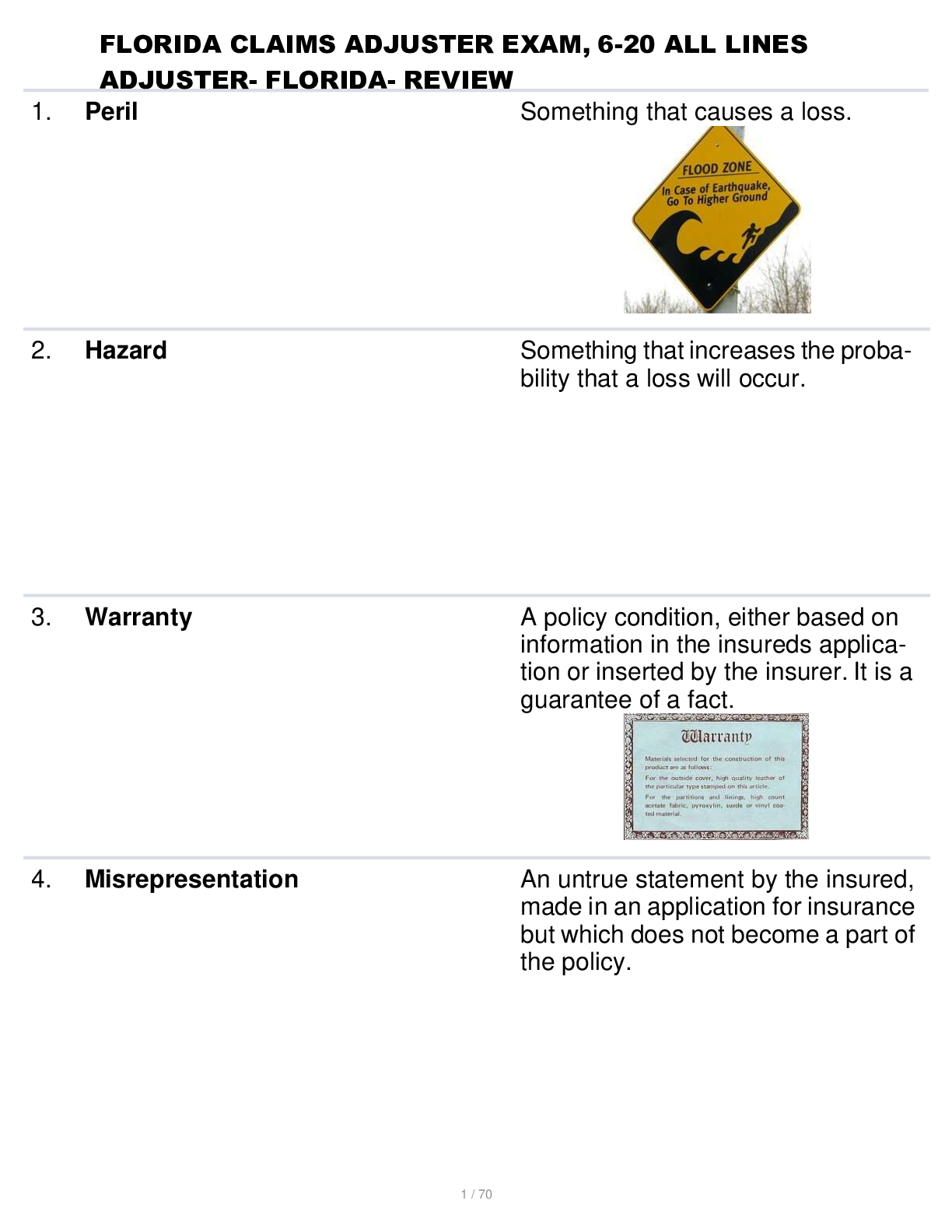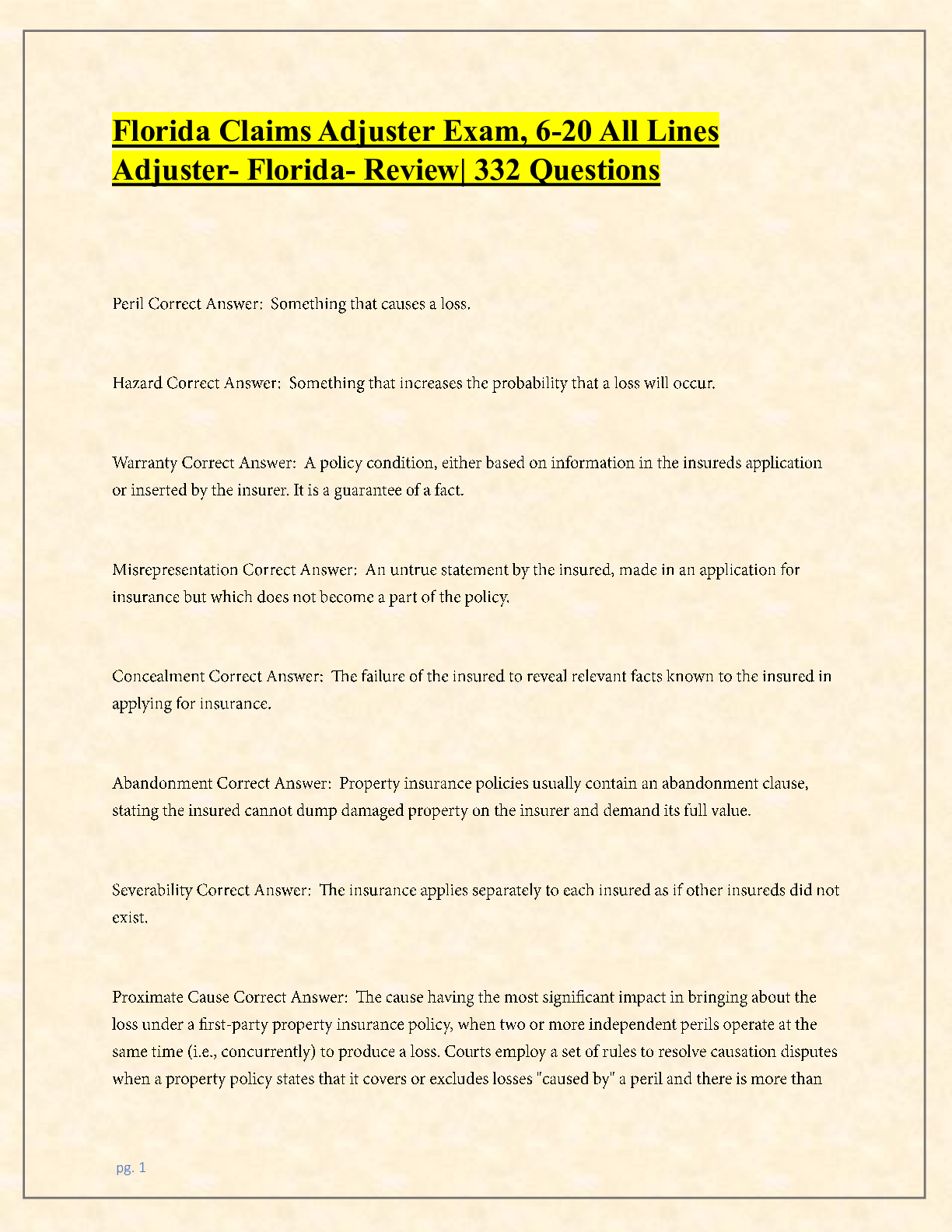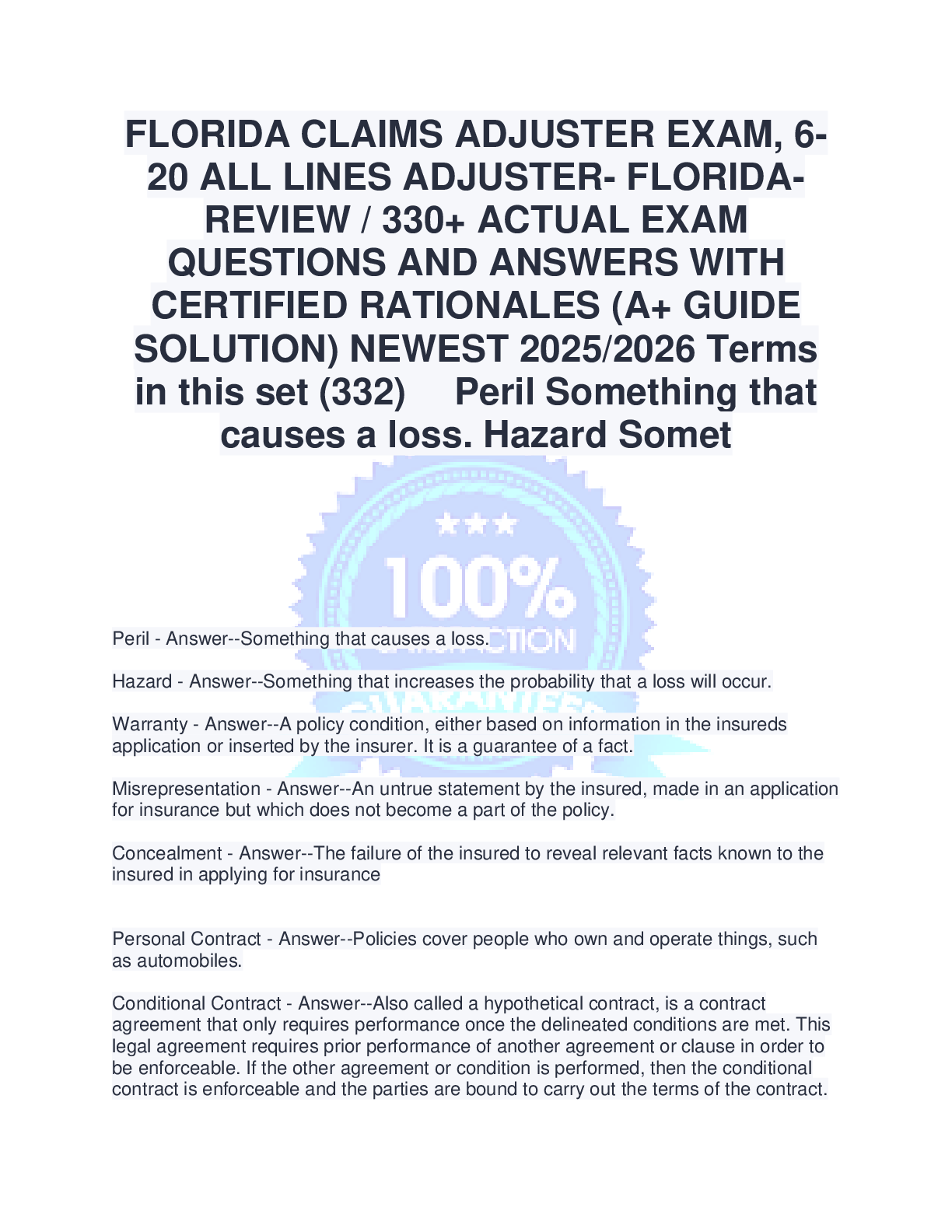Florida Claims Adjuster Exam, 6-20 All Lines Adjuster- Florida- Review
Document Content and Description Below
Florida Claims Adjuster Exam, 6-20 All Lines Adjuster- Florida- Review 1 / 44 1. Peril: Something that causes a loss. 2. Hazard: Something that increases the probability that a loss will occur. 3.... Warranty: A policy condition, either based on information in the insureds application or inserted by the insurer. It is a guarantee of a fact. 4. Misrepresentation: An untrue statement by the insured, made in an application for insurance but which does not become a part of the policy. 5. Concealment: The failure of the insured to reveal relevant facts known to the insured in applying for insurance. 6. Abandonment: Property insurance policies usually contain an abandonment clause, stating the insured cannot dump damaged property on the insurer and demand its full value. 7. Severability: The insurance applies separately to each insured as if other insureds did not exist. 8. Proximate Cause: The cause having the most significant impact in bringing about the loss under a first-party property insurance policy, when two or more independent perils operate at the same time (i.e., concurrently) to produce a loss. Courts employ a set of rules to resolve causation disputes when a property policy states that it covers or excludes losses "caused by" a peril and there is more than one peril at work in a fact pattern. Under common law, whether the policy provides coverage depends on which peril is chosen as the proximate cause. 9. Direct Loss: Physical harm to tangible property. 10. Indirect Loss: Economic loss which flows as a result of direct loss. 11. Actual Cash Value(ACV): Replacement Cost minus Depreciation 12. Coinsurance: The amount, generally expressed as a fixed percentage, an insured must pay against a claim after the deductible is satisfied. It's ultimately a way for the insured and insurer to share responsibility for the risk. It can also help reduce the cost of the insurance policy premium. Coinsurance can be written on an 80/20, 90/100, or 100% rule. 13. Personal Contract: Policies cover people who own and operate things, such as automobiles. 14. Conditional Contract: Also called a hypothetical contract, is a contract agreement that only requires performance once the delineated conditions are met. This legal agreement requires prior performance of another agreement or clause in order to be enforceable. If the other agreement or condition is performed, [Show More]
Last updated: 2 years ago
Preview 1 out of 46 pages

Buy this document to get the full access instantly
Instant Download Access after purchase
Buy NowInstant download
We Accept:

Reviews( 0 )
$15.00
Can't find what you want? Try our AI powered Search
Document information
Connected school, study & course
About the document
Uploaded On
Feb 23, 2023
Number of pages
46
Written in
Additional information
This document has been written for:
Uploaded
Feb 23, 2023
Downloads
0
Views
67

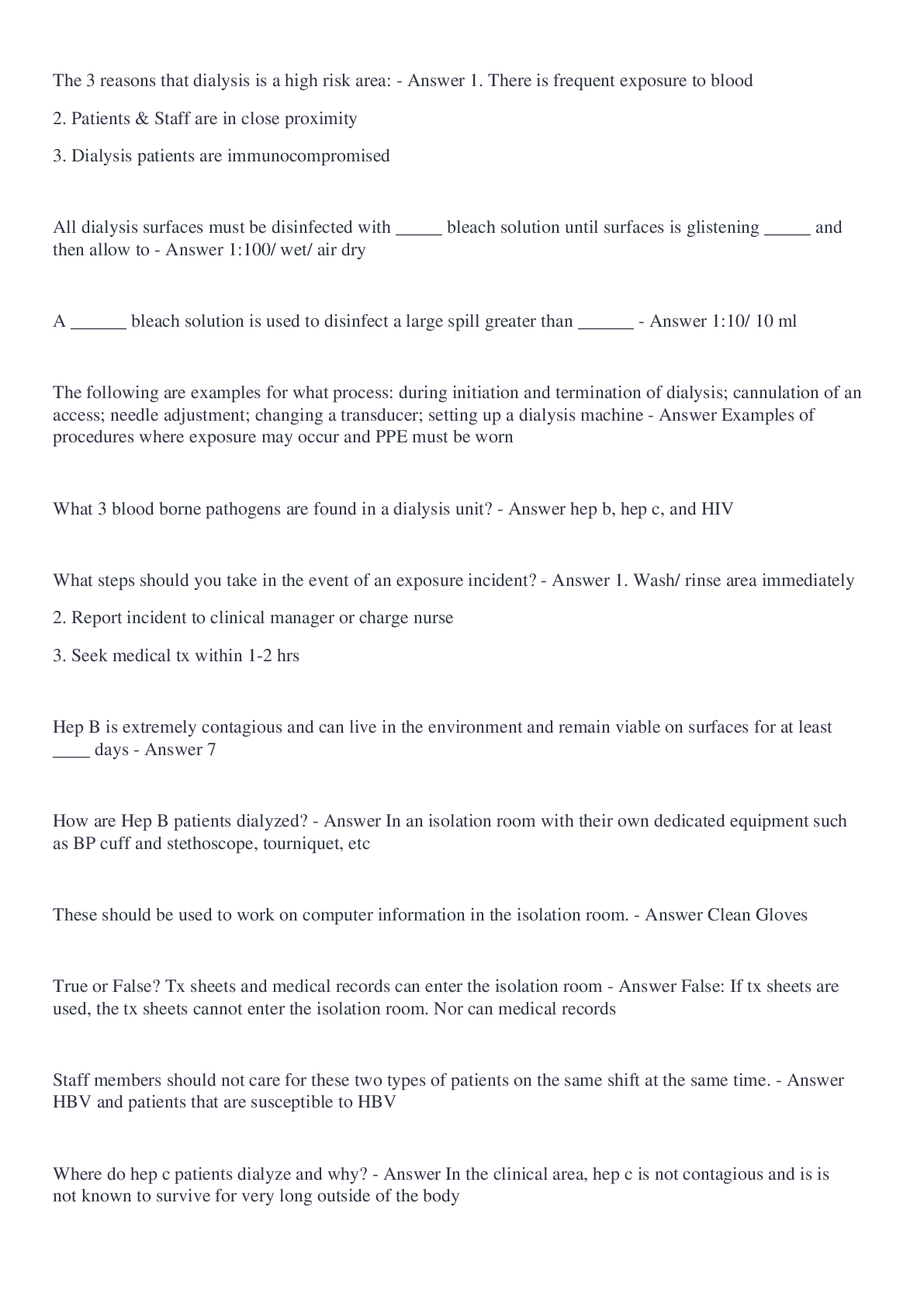
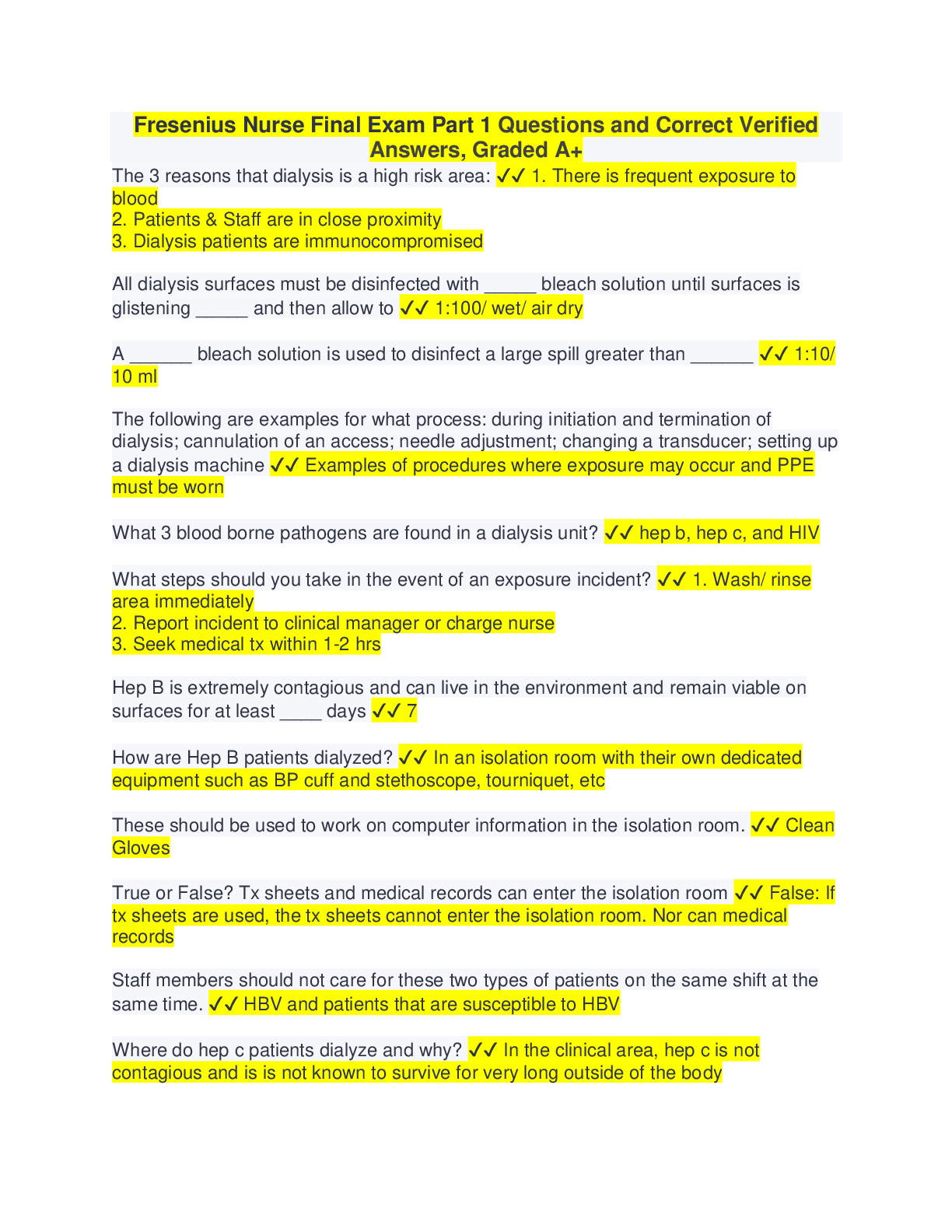
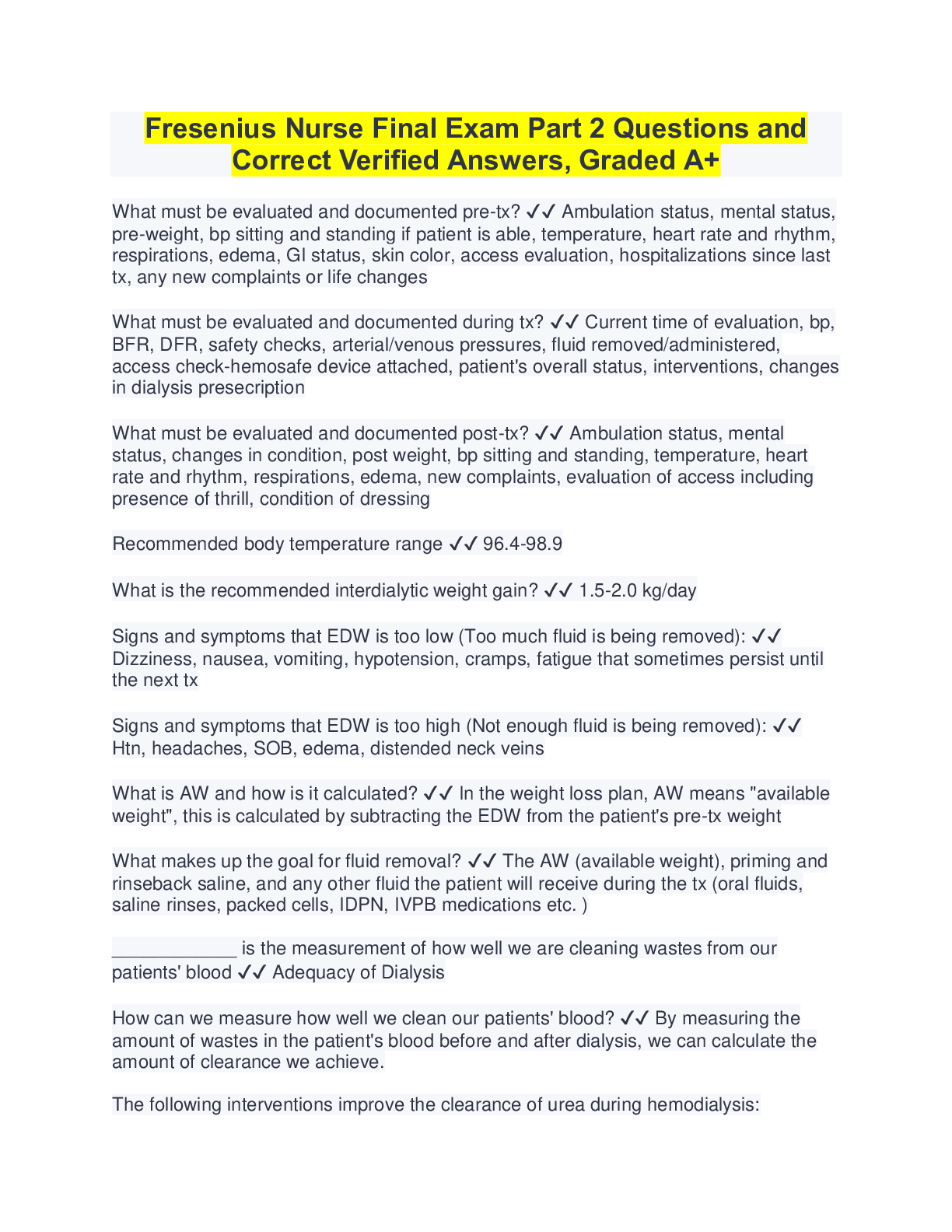
.png)



